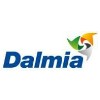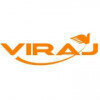Electrical Engineer
1000+ Electrical Engineer Interview Questions and Answers

Asked in Shabari Telecable Network

Q. Which material has high resistance?
The material with high resistance is an insulator.
Insulators have high resistance to the flow of electric current.
Examples of insulating materials include rubber, glass, and plastic.
Insulators are used to prevent the flow of electricity and protect against electric shocks.
They are also used in electrical insulation to prevent short circuits.

Asked in Shilpa Medicare

Q. Which type or class of CT can we use for differential protection?
We can use a Class CT for differential protection.
Class CTs are commonly used for differential protection in electrical engineering.
Class CTs provide accurate current measurement and can detect small differences in current flow.
They are often used in applications such as transformer differential protection and motor protection.
Class CTs are designed to have a high accuracy and low saturation level to ensure reliable differential protection.
Examples of Class CTs commonly used ...read more

Asked in GAIL

Q. What are the best practices for electrical motor maintenance?
Regular inspection, cleaning, lubrication, and testing are key practices for electrical motor maintenance.
Regularly inspect motor for signs of wear or damage
Keep motor clean and free of dust and debris
Lubricate moving parts as recommended by manufacturer
Test motor performance regularly to detect any issues early
Follow proper storage and handling procedures when not in use
Asked in ABPS Infrastructure Advisory

Q. What is the purpose and functionality of transformers in electrical engineering?
Transformers are electrical devices that transfer electrical energy between circuits through electromagnetic induction, altering voltage levels.
Transformers increase (step-up) or decrease (step-down) voltage levels for efficient power transmission.
They are essential in power distribution systems to minimize energy loss over long distances.
Example: A step-up transformer raises voltage from a power plant to transmission levels (e.g., 400 kV).
Example: A step-down transformer red...read more
Asked in Photon Vidyut

Q. Are you willing to travel to multiple cities for company work to build a strong team?
Yes, I am able to travel to multiple cities for company work to build a strong team.
I have experience traveling to different cities for work-related projects.
I am comfortable with adjusting to new environments and working with diverse teams.
I understand the importance of building strong team dynamics and am willing to travel to achieve that.
I have successfully traveled to multiple cities in the past to collaborate with colleagues and clients.
I am flexible and adaptable when i...read more
Asked in Mega Electricals

Q. What is the role of an engineer in Operation and Maintenance?
Operation & Maintenance role involves ensuring the proper functioning and upkeep of electrical systems and equipment.
Regularly inspecting electrical systems and equipment for any issues
Performing routine maintenance tasks to prevent breakdowns
Troubleshooting and repairing electrical faults
Updating maintenance records and documentation
Collaborating with other team members to ensure smooth operation of electrical systems
Electrical Engineer Jobs




Asked in Fuji Electric

Q. What are comparators? Draw band pass filter circuit
Comparators are electronic circuits that compare two voltages and output a digital signal based on the comparison. Band pass filter circuit allows only a certain range of frequencies to pass through.
Comparators are used in applications such as voltage level detection, waveform shaping, and pulse width modulation.
They have two input terminals for the voltages to be compared and one output terminal for the digital signal.
Band pass filter circuit consists of a combination of hig...read more

Asked in Kilburn Chemicals

Q. What is the furan test for transformers, and why is it needed?
The furan test detects insulation degradation in transformers by analyzing furan compounds in oil samples.
Furan compounds indicate the presence of cellulose degradation in transformer insulation.
The test helps assess the health of transformer insulation systems.
Higher furan levels correlate with increased risk of transformer failure.
Example: A transformer with elevated furan levels may require maintenance or replacement.
Share interview questions and help millions of jobseekers 🌟


Asked in ITC

Q. What are the different types of interviewing techniques?
Different types of interviewing techniques include behavioral, situational, panel, group, and phone interviews.
Behavioral interviews focus on past experiences and how they relate to the job
Situational interviews present hypothetical scenarios to assess problem-solving skills
Panel interviews involve multiple interviewers asking questions
Group interviews assess how candidates interact with others
Phone interviews are conducted over the phone for initial screening

Asked in Tata Steel

Q. What is a semiconductor?
A semiconductor is a material that has electrical conductivity between that of a conductor and an insulator.
Semiconductors are used in electronic devices such as transistors, diodes, and integrated circuits.
They have a band gap that allows them to selectively conduct electricity.
Common examples of semiconductors include silicon, germanium, and gallium arsenide.

Asked in GreatWhite Electricals

Q. What is latex (Documentation software), Give its example?
LaTeX is a documentation software commonly used for technical and scientific documents.
LaTeX is a typesetting system commonly used for technical and scientific documents
It is widely used for academic papers, reports, and presentations
LaTeX uses markup tags to structure and format documents
Examples of LaTeX editors include Overleaf, TeXShop, and ShareLaTeX

Asked in Shree Cement

Q. How do LRS and GRR work?
LRS and GRR are not commonly used acronyms in the field of electrical engineering.
LRS and GRR are not widely known acronyms in the electrical engineering field.
There is no specific working principle associated with LRS and GRR as they are not commonly used terms.
It is possible that LRS and GRR are specific to a certain company or industry, in which case their working principles would need to be explained within that context.

Asked in Motwane Manufacturing Company

Q. How do you find the transformer winding resistance and its exact value?
Transformer winding resistance can be found using a multimeter and Ohm's law.
Disconnect the transformer from the power source
Measure the resistance of each winding using a multimeter
Use Ohm's law to calculate the exact value of the resistance
Resistance = Voltage / Current
Check the manufacturer's specifications for the expected resistance values
Asked in Nandan Steel And Power

Q. How many electrical and electronic components are used and functioning?
Electrical and electronics components are vital in various applications, from consumer electronics to industrial systems.
Resistors: Used to limit current flow, e.g., in LED circuits.
Capacitors: Store and release electrical energy, e.g., in power supply filters.
Inductors: Store energy in a magnetic field, e.g., in transformers.
Diodes: Allow current to flow in one direction, e.g., in rectifiers.
Transistors: Act as switches or amplifiers, e.g., in signal processing.
Integrated Ci...read more
Asked in Nandan Steel And Power

Q. How many fault in your plant . Names and solutions.
Common electrical faults include short circuits, overloads, and grounding issues, each requiring specific solutions.
Short Circuits: Caused by insulation failure; solution involves replacing damaged wires and ensuring proper insulation.
Overloads: Occur when equipment draws more current than rated; solution includes upgrading circuit breakers and load balancing.
Grounding Issues: Can lead to equipment damage; solution involves checking grounding connections and ensuring complian...read more

Asked in Syrma SGS Technologies

Q. What are basic electrical skills?
Basic electrical skills include knowledge of circuits, wiring, and electrical safety.
Understanding of Ohm's law and circuit analysis
Ability to read and interpret electrical schematics
Familiarity with electrical codes and regulations
Knowledge of electrical safety practices
Proficiency in using electrical tools and equipment
Experience with troubleshooting electrical systems

Asked in Suzlon Group

Q. What is a DFIG system?
DFIG stands for Doubly Fed Induction Generator, a type of wind turbine generator system.
DFIG system is a type of wind turbine generator system
It uses a wound rotor induction generator with a partial power electronic converter
The converter controls the rotor current and allows for variable speed operation
DFIG system is more efficient and cost-effective than other wind turbine systems
It is commonly used in wind farms and renewable energy projects

Q. What is power .how many types of current
Power is the rate at which work is done. There are two types of current - AC and DC.
Power is measured in watts (W)
AC current changes direction periodically while DC current flows in one direction only
Examples of AC devices include household appliances while DC devices include batteries and electronic devices

Asked in Bses Rajdhani Power

Q. What is the basic difference between current and voltage?
Current is the flow of electric charge, while voltage is the force that drives the current.
Current is the rate of flow of electric charge through a conductor.
Voltage is the difference in electric potential between two points in a circuit.
Current is measured in Amperes (A), while voltage is measured in Volts (V).
Ohm's Law relates current, voltage, and resistance in a circuit: V = I * R.
In a simple analogy, current is like the flow of water in a pipe, while voltage is like the ...read more

Asked in Vensa Infrastructure

Q. What is the current carrying capacity of a 185 sqmm aluminum cable?
The current carrying capacity of a 185sqmm al cable depends on various factors such as the material, insulation, and installation method.
The current carrying capacity of a cable is typically determined by the manufacturer and specified in the cable's datasheet.
Factors such as the material (aluminum in this case), insulation type, ambient temperature, and installation method all affect the current carrying capacity.
For a 185sqmm aluminum cable, the current carrying capacity ca...read more

Asked in Desai Electronics

Q. What is the difference between grounding and earthing?
Grounding is the process of connecting an electrical circuit to the ground, while earthing is the process of connecting a conductive object to the earth.
Grounding is done to protect people and equipment from electrical faults and lightning strikes.
Earthing is done to prevent electric shocks and to ensure the safety of people and equipment.
Grounding is usually done by connecting a wire from the electrical circuit to a grounding electrode, such as a metal rod driven into the gr...read more

Asked in Tata Steel

Q. What is the minimum insulation resistance value for an HT motor?
Minimum insulation resistance value for HT motor.
HT motor insulation resistance should be at least 1 Mega Ohm
Insulation resistance should be measured regularly to ensure safety
Factors like temperature and humidity can affect insulation resistance

Asked in Schneider Electric

Q. What is a Buchholz relay and how does it work?
A Buchholz relay is a protective device used in oil-filled transformers to detect and prevent internal faults.
Detects faults such as insulation breakdown or arcing within the transformer
Consists of a float switch connected to an alarm or trip circuit
When gas or oil accumulates due to a fault, the float rises and triggers the alarm or trip signal
Helps prevent major damage to the transformer by isolating it from the power source
Asked in Shlaaghy Sahlan Electro Infra

Q. What are you know about wind turbine share details? and what is working of IGBT ?
Wind turbines convert wind energy into electricity. IGBT stands for Insulated Gate Bipolar Transistor, used in power electronics.
Wind turbines use blades to capture wind energy and convert it into rotational motion.
The rotational motion drives a generator to produce electricity.
IGBTs are semiconductor devices used in power electronics to switch high power loads efficiently.
IGBTs are commonly used in variable frequency drives, renewable energy systems, and electric vehicles.

Asked in Teva Pharmaceuticals

Q. What is inrus current? And how generate the inrus current in motor and transformer?
Inrush current is the initial surge of current that flows when an electrical device is first turned on.
Inrush current occurs due to the charging of capacitive loads and magnetization of inductive loads.
Inrush current can cause voltage drops, tripping of circuit breakers, and damage to electrical components.
Inrush current can be reduced by using soft-start circuits, pre-charging capacitors, and selecting appropriate fuses.
Examples of devices that generate inrush current includ...read more

Asked in Larsen & Toubro Limited

Q. What are earthling procedures? What is earthgrid?
Earthing procedures involve connecting electrical systems to the ground to prevent electric shock and ensure safety. Earthgrid is a network of interconnected grounding systems.
Earthing procedures involve connecting electrical systems to the ground using conductors like copper rods or plates.
The purpose of earthing is to prevent electric shock by providing a path for fault currents to flow safely into the ground.
Earthgrid is a network of interconnected grounding systems that e...read more

Asked in Shapoorji Pallonji Group

Q. Plant EHT system and single line diagram of plants.
Plant EHT system and single line diagram of plants.
EHT system refers to Extra High Tension system used in power plants
Single line diagram shows the electrical connections between different components
It is important to have a clear and accurate diagram for safety and maintenance purposes

Asked in MAK Controls & Systems

Q. What are the differences between Direct Current (DC) and Alternating Current (AC)?
DC flows in one direction, while AC changes direction periodically, affecting their applications and characteristics.
DC (Direct Current) flows steadily in one direction, e.g., batteries.
AC (Alternating Current) changes direction periodically, e.g., household power supply.
DC is used in low-voltage applications like electronics and batteries.
AC is used for high-voltage power transmission and in homes.
DC has a constant voltage level, while AC voltage varies sinusoidally.
AC can b...read more

Asked in Viraj Profiles

Q. What happens if the gate-to-cathode resistance is greater than 30 milliohms?
A gate-to-cathode value over 30 mohm can indicate potential issues in circuit performance and component reliability.
Higher resistance can lead to increased power loss in the circuit.
It may cause slower switching speeds in semiconductor devices.
In power electronics, it can affect the efficiency of converters.
Example: In MOSFETs, a high gate-to-cathode resistance can lead to inadequate gate drive, affecting performance.

Asked in CG Power and Industrial Solutions

Q. What is a trainer, and what are the different types of trainers?
A trainer is a professional who imparts knowledge and skills in a specific field, using various methods and tools.
Types of trainers include: Technical Trainers (e.g., software training), Corporate Trainers (e.g., leadership skills), and Fitness Trainers (e.g., personal trainers).
Technical Trainers focus on specific skills or technologies, such as programming languages or software applications.
Corporate Trainers develop employee skills in areas like communication, teamwork, an...read more
Interview Questions of Similar Designations
Interview Experiences of Popular Companies





Top Interview Questions for Electrical Engineer Related Skills

Calculate your in-hand salary
Confused about how your in-hand salary is calculated? Enter your annual salary (CTC) and get your in-hand salary


Reviews
Interviews
Salaries
Users










